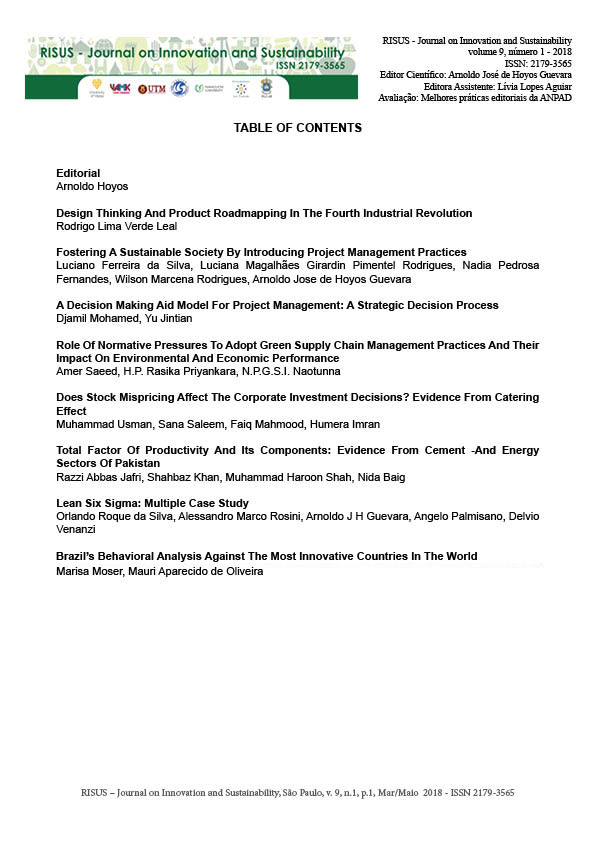BRAZIL’S BEHAVIORAL ANALYSIS AGAINST THE MOST INNOVATIVE COUNTRIES IN THE WORLD
DOI:
https://doi.org/10.24212/2179-3565.2018v9i1p85-110Keywords:
Innovation, Technologic innovation, Innovative Countries, STEM, Education, Government, Cluster Analysis.Abstract
Innovation can be defined as the implementation of a new or significantly improved product (good or service), or a process, a new marketing method, a new organizational method in business practices, workplace organization, or external relations. This innovation can be measured by several factors such as investments in research and development, the concentration of high-tech companies traded on the stock exchange, among others. The present study aims to perform a cluster analysis to investigate the behavior of the most innovative countries when compared to Brazil. The study contemplates a historical series from the years 2012 to 2015 of the 30 most innovative countries in the world having been added to Brazil. In addition, a series of macroeconomic, political and social variables.Downloads
Published
2018-03-31
Issue
Section
Papers
License
This Journal is licensed under a Creative Commons Attribution-Non Commercial-No Derivers 4.0 International license.
1.The author (s) authorize the publication of the article in the journal;
2.The author (s) warrant that the contribution is original and unpublished and is not in the process of being evaluated in other journal (s);
3. The journal is not responsible for the opinions, ideas and concepts emitted in the texts, as they are the sole responsibility of its author (s);
4. The editors are entitled to make textual adjustments and to adapt the articles to the standards of publication.


